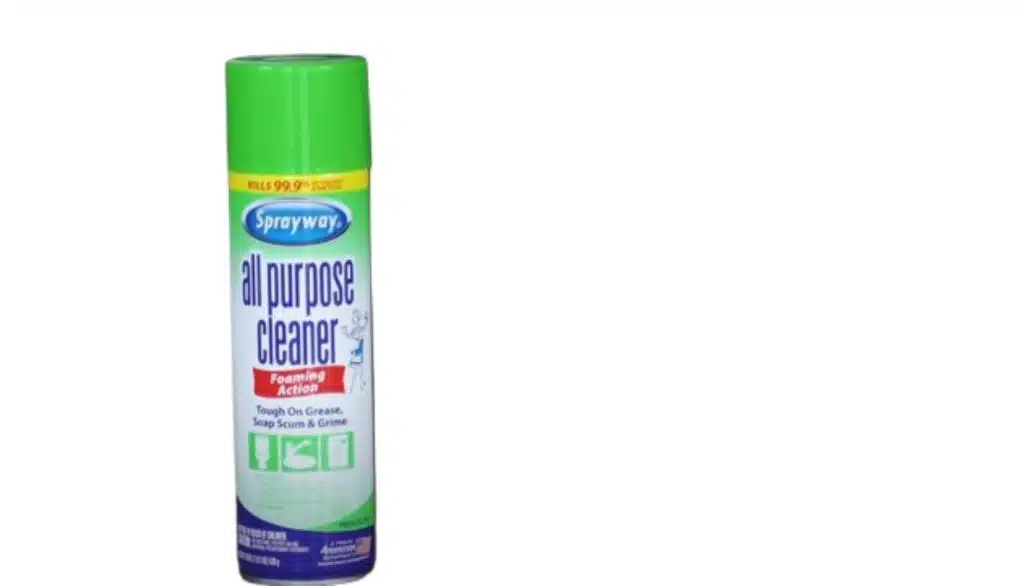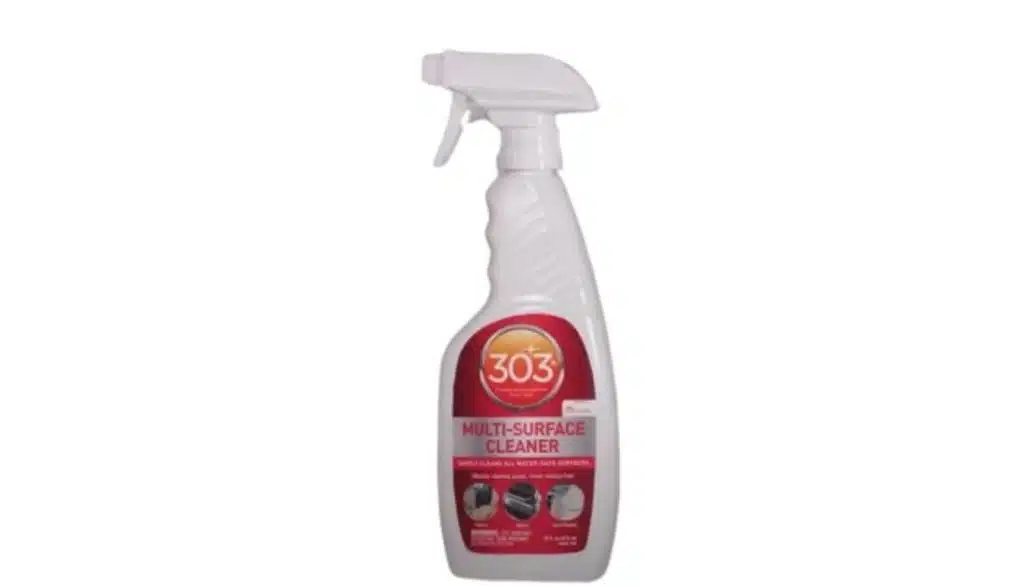As an Amazon Associate I earn from qualifying purchases.
In cleaning the house, we are often confused by the variety of products available. The thought of which is better and which works more comes to mind. Top contenders include multi-surface and all-purpose cleaners. Although we think the two products are similar in function, but no, there are many differences between these two products.
In this article, we will help you understand the key differences between these two products, their functionality, and which one is better for your home. Lets begin

What is a All-purpose cleaner?
A multi-surface cleaner is a cleaner that is meant to clean a wide range of surfaces without harming the surface or the cleaner. These cleaners are formulated to work on delicate materials, including:
- Glass and mirrors
- Hardboard and fiberboard, some covered with a layer of paper, as well as a select set of uncoated woods
- Stainless steel
- Marble and granite
- Ceramic and porcelain

Multi-surface cleaners can be mild so they are unlikely to leave streaks on items that are shiny such as glass, or harm material such as natural stone. They are perfect for cleaning several segments of your house so that you do not have to switch between products.
What is an Multipurpose cleaner?
An all-purpose cleaner, as its name suggests, Specially designed to clean dirt from different areas of the house. This cleaner is particularly well known for its effectiveness.It helps remove dirt, grease, and grime from commonly used surfaces like:
- Kitchen countertops (laminate, granite, or marble)
- Bathroom tiles and sinks
- Wood furniture
- Plastic and metal outdoor furniture

However, all-purpose cleaners can sometimes be too harsh for certain surfaces, especially those that are more sensitive to chemicals, like stainless steel or glass. For these surfaces, you may need a specialized product to avoid damage or streaks.
Key Differences Chart Between Multi-Surface and All-Purpose Cleaners
When choosing between multi-surface and all-purpose cleaners, it’s important to understand the key differences in their formulation, use, and effectiveness on various surfaces. Here’s a breakdown of the main distinctions:
[wptb id="1288" not found ]This chart should help users choose the right cleaner based on their needs!
Multi-Surface vs. All-Purpose Cleaners When should you use which?
Choosing between multi-surface and all-purpose cleaners comes down to the specific surfaces you are cleaning and the type of dirt or grime you need to remove. Here’s a quick guide to help you decide:
When to Use Multi-Surface Cleaners
The cleaning power of multipurpose cleaners is very high. So this cleaner can also effectively remove dirt from the hard surface of ovens, stovetops and bathroom tiles.
When to Use All-Purpose Cleaners
All purpose cleaners are suitable for cleaning glass items in the home such as glass windows, mirrors, furniture glass. Also stainless steel equipment, electronics skin can be cleaned with the help of all purpose cleaners with very gentle touch. This will keep your beautiful items sparkling like new.
Tip: If you’re unsure whether a product is safe for a specific surface, always check the label or test it on a small, inconspicuous area first.
Are The Two Cleaners Equally Effective?
Both multi-surface and all-purpose cleaners are effective in their own right, but their strength depends on the type of cleaning job at hand. For example:
all-purpose cleaners are incredibly effective at cleaning a wide variety of delicate surfaces, such as glass, mirrors, and stainless steel. They excel at leaving streak-free finishes and preventing damage to sensitive materials.
multi-surface cleaners are better suited for tackling tougher messes and dirt. Their stronger chemical composition can break down grime and grease more effectively, especially in the kitchen or bathroom.
In summary, they are equally effective, but only when used on the appropriate surfaces. Using them incorrectly, such as applying an all-purpose cleaner on delicate surfaces, may lead to less desirable results.
Can You Use Both Cleaners in Your Home?
Yes, both cleaners can be used for your cleaning needs. But you need to be sure where to use which cleaner. Read product instructions to reduce risk. This will save you both time and money. all-purpose cleaners are great for delicate surfaces like wood, glass, and stainless steel, offering a gentler cleaning solution that won’t cause damage. On the other hand, multi-surface cleaners are excellent for tougher jobs, like cleaning countertops, floors, and areas prone to grime or grease.
Finishing Statement
You may need both Multi-Surface and all purpose. Because the effectiveness of the two cleaners is different. You must know which cleaner you should use on which surface. This will keep your stuff risk free and shiny. This way you can enjoy the effectiveness of both cleaners with proper use.
Frequently Asked Questions
While some Multipurpose cleaners claim to work on glass, many can leave streaks or a cloudy finish. For the best results, use an all-purpose cleaner that is designed for streak-free cleaning on glass and mirrors.
Yes, most all-purpose cleaners are formulated to be gentle on natural stone surfaces like marble and granite. Always read the product label to confirm it’s safe for use on stone surfaces.
Some all-purpose cleaners contain disinfecting properties, but not all do. If you’re looking for a cleaner that kills germs and bacteria, make sure the product is labeled as a disinfectant or use a separate disinfecting cleaner.
Some multi-surface cleaners are gentle enough to use on electronic screens. However, it’s important to ensure the cleaner is safe for electronics and to apply it to a cloth rather than spraying directly on the device.
Multipurpose cleaners can sometimes leave streaks or smudges on stainless steel surfaces. It’s best to use a All-purpose cleaners specifically designed for stainless steel to achieve a streak-free shine.
Amazon and the Amazon logo are trademarks of Amazon.com, Inc, or its affiliates.
Leave a Reply